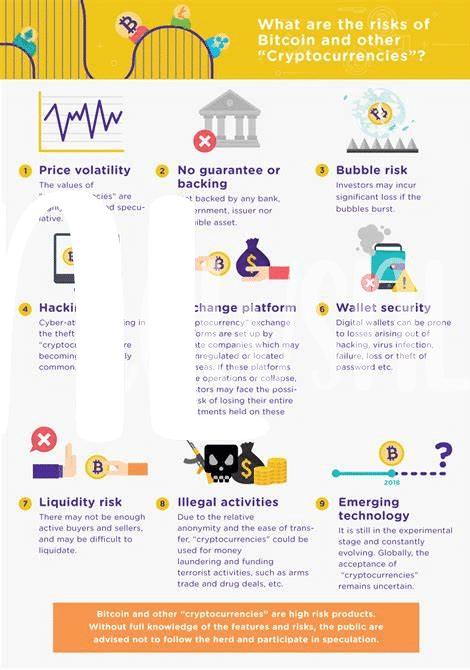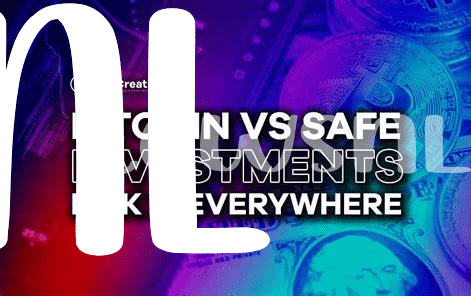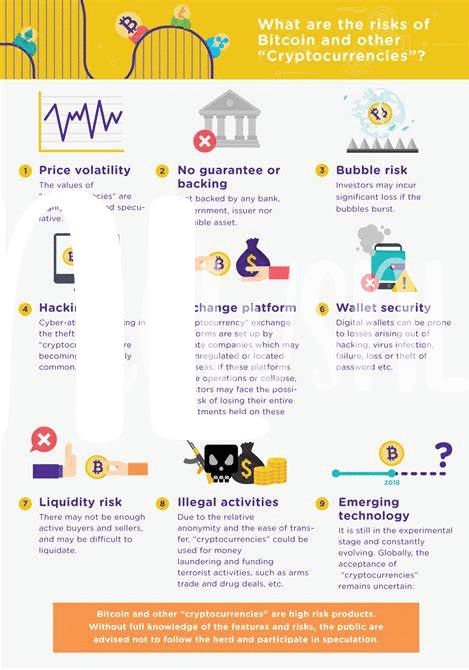🚨 the Hidden Dangers of Bitcoin Wallets Explained

Imagine you’ve just tucked away some money in what you believe to be a super-safe digital “pocket.” That’s what using a Bitcoin wallet feels like. It’s like having a digital treasure chest where your precious coins are stored. However, just like in pirate stories, there are hidden traps waiting to trip up the unwary. Not all that glitters is gold, and not all wallets are as secure as they might seem. There are sneaky loopholes and hidden backdoors that hackers love to exploit. These crafty cyber pirates are always on the lookout for any weakness, ready to make your digital gold their own.
To give you an idea, let’s break down some of these dangers in a simple way:
| Hazard Type | Description | Why It’s a Worry |
|---|---|---|
| 🔓 Unsecure Connection | Using public Wi-Fi or unsecured internet connections. | Hackers can easily intercept your data and access your wallet. |
| 🕵️♂️ Phishing Attacks | Tricky emails or messages pretending to be from reputable sources. | They trick you into giving away your security details. |
| 🐛 Software Vulnerabilities | Flaws in the wallet software itself. | Gives hackers a backdoor straight to your coins. |
Bearing in mind these scenarios, it becomes crucial to understand that while the concept of digital wallets promises unparalleled convenience, the reality of their security is far more complex and riddled with potential risks.
🔒 What Makes a Bitcoin Wallet Secure?
Imagine your digital wallet is like a treasure chest. In the world of Bitcoin, the strength of the lock and the cleverness of its hiding place are what keep your treasures safe. A truly secure Bitcoin wallet combines several defenses to guard against theft. It’s not just about having a strong password (though that’s certainly important). It also means using two-factor authentication, which adds an extra step to verify it’s really you trying to access your funds. Think of it as having a guard ask for a secret handshake in addition to a key. Encryption is another layer of security, scrambling your wallet’s information so that even if someone gets their hands on it, deciphering the contents would be like solving a puzzle without the picture box. For those interested in further protecting their digital currency assets and learning about potential threats in emerging markets, a visit to https://wikicrypto.news/the-future-of-bitcoin-security-in-fast-growing-economies can provide deeper insights. This multifaceted approach helps ensure that your Bitcoin chest remains locked tight, away from prying eyes.
🕵️♂️ How Hackers Target Your Digital Coins

Imagine a digital treasure chest where you keep your prized bitcoins. Now imagine that there are clever thieves out there, equipped with digital lockpicks, tirelessly working to crack it open. These digital thieves, or hackers, have a toolkit full of tricks to get their hands on your digital coins. First, they might try phishing attacks, pretending to be a trusted entity to trick you into giving up your private keys. Then, there’s malware, a sort of digital virus, which they can install on your computer or smartphone to spy on your transactions and steal your wallet’s information. Some hackers go old school, engaging in social engineering tactics to manipulate you into revealing sensitive information. They constantly scan for vulnerabilities, whether it’s the wallet’s software, your internet connection, or the exchanges where you trade. The digital realm is their playground, and they’re always on the lookout for a new way to jump the fence and snatch your precious digital currency. Think of it as a continuous game of cat and mouse, where staying one step ahead is the key to safeguarding your digital treasure.🔍💻🔐
💡 Tips to Fortify Your Wallet Against Theft

Keeping your digital coins safe is a bit like guarding treasure; you need to be smart and prepared. Imagine your wallet as a treasure chest. Just as you wouldn’t leave a chest of gold in the open, it’s crucial to fortify your digital wallet. Start simple: Use strong, unique passwords and change them regularly. Next, consider two-factor authentication (2FA) your best friend—it’s like having a secret handshake that only you and your wallet know. Also, be wary of phishing attempts; hackers often disguise themselves as trustworthy sources to steal your precious keys. Keep your software updated; think of it as keeping the walls of your fortress strong against attackers. Don’t forget, diversifying where you keep your digital currency can be as wise as not keeping all your eggs in one basket. And for more on keeping your investments secure, especially when considering bitcoin trading strategies security concerns, keeping informed is key to protecting your assets against sophisticated thieves lurking in the digital shadows.
🚀 Secure Wallets: the Future of Bitcoin Safety
Imagine a future where your digital coins are shielded with a fortress of security, making it nearly impossible for hackers to breach the walls. This isn’t a distant dream but a rapidly approaching reality, thanks to the advancements in secure wallets. These cutting-edge wallets are designed with the singular goal of protecting your Bitcoin from the prying eyes of cyber thieves. They come equipped with features such as multiple layers of encryption and the ability to require physical confirmation for transactions, ensuring that even the most sophisticated hacker is left scratching their head.
| Feature | Description |
|---|---|
| Encryption | Scrambles data into a code that only you can unlock. |
| Physical Confirmation | Requires a real-world action, like pressing a button on a hardware wallet, to approve transactions. |
| Biometric Security | Uses unique physical traits, like fingerprints, to add another layer of security. |
| Multi-Signature Support | Needs approval from multiple devices or individuals to complete a transaction. |
Moreover, the focus isn’t solely on keeping unauthorized users out. These secure wallets also make it simpler for you to manage and access your investments safely, introducing features like user-friendly interfaces and support for multiple cryptocurrencies. As we move forward, the expectation is that these wallets will not only become more robust in their defense against online threats but also more integrated with our daily lives, making digital currency an even more essential part of our financial toolkit.
🤔 Are You Making These Bitcoin Security Mistakes?

When diving into the world of digital currency, it’s easy to overlook seemingly minor habits that might actually put your assets at risk. For instance, using the same password across different platforms seems convenient but can open a Pandora’s box if one platform is compromised. Not utilizing two-factor authentication (2FA) is like leaving your virtual front door unlocked, inviting trouble. Interestingly, not all Bitcoin enthusiasts are aware of how crucial software updates are; these updates often include vital security enhancements to keep your digital coins safe. Similarly, neglecting to make a secure backup of wallet keys can spell disaster if your primary access points are lost or fail. It’s also not uncommon for individuals to overlook the importance of privacy, using public Wi-Fi to access their wallets, which is akin to shouting your account details in a crowded place. Understanding the security terrain of Bitcoin in emerging markets is critical, as it presents unique challenges. For deeper insights into overcoming these hurdles, consider exploring bitcoin taxation guidelines security concerns, which sheds light on navigating the complexities of securing digital assets in fluctuating markets. By addressing these common oversights, users can significantly bolster their Bitcoin wallet’s defense, ensuring their digital treasure remains out of reach from prying eyes.
